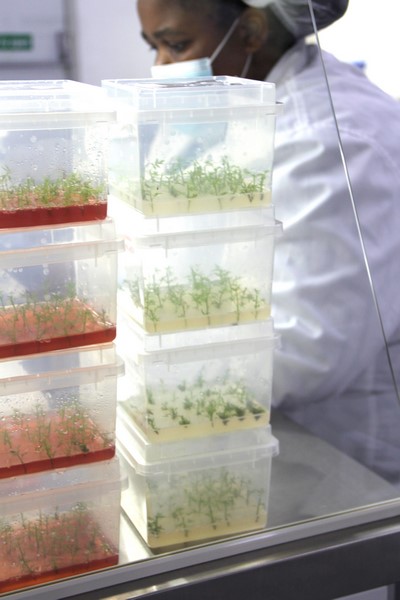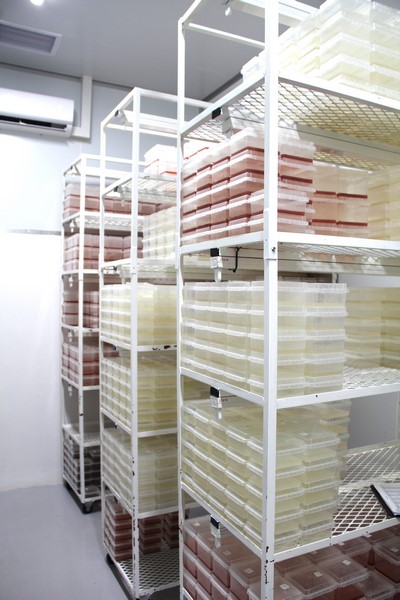In a landmark move set to redefine fruit cultivation in South Africa, Culdevco, a leading cultivar management company, has partnered with the Tissue Culture Facility (TCF) to initiate the micropropagation of plum cultivars. Launched in 2025, this pioneering project marks the first time plum cultivars have been propagated in tissue culture locally. The aim is to provide growers with disease-free plant material and strengthen the industry’s competitiveness.
Need for Clean Plant Material
The deciduous fruit sector has long battled the challenge of providing reliably healthy nursery stock. South Africa’s plant improvement scheme has had limited success. In 2024, only 28% of stone-fruit trees were certified, leaving orchards vulnerable to infection from pathogens such as viruses and viroids.

A clear example is plum marbling, a viroid discovered in 2020 that had already spread widely before it was identified. Such infections are graft-transmissible: if present in either rootstock or scion, the entire tree becomes infected, resulting in poor-quality fruit. As former Hortgro Science manager Hugh Campbell noted, clean rootstocks alone are not enough if the budwood is contaminated. By propagating both rootstock and scion in tissue culture, as practiced in advanced European nurseries, growers dramatically reduce this risk.
Culdevco is addressing this challenge by sourcing starting material from its highly tested, isolated nucleus units.
How Micropropagation Benefits Growers
Micropropagation, or tissue culture, brings clear advantages to South African growers.
It provides disease-free orchards by ensuring that clean starting material results in healthy trees. This foundation leads to higher yields and improved fruit quality.
It allows rapid, year-round supply. Unlike conventional methods tied to seasonal growth, micropropagation enables continuous, indoor multiplication. A shoot can produce new micro-cuttings every four to six weeks, creating a steady flow of trees for nurseries.
It supports higher grafting success. Micropropagated material makes green grafting possible while plants are still small. With only one wound at the graft union, the risk of stem cankers drops significantly, while producing strong and reliable unions.
It gives planting flexibility. Trees are grown in containers, reaching 60 to 80 cm in about eight months. Containerised trees can be planted at any time of year, giving growers greater control over orchard establishment.
Looking Ahead
For Culdevco, this initiative is a key part of its responsibility as a cultivar manager for economically valuable varieties such as African Delight, Ruby Star, and Ruby Sun. Tissue culture, which produces identical clones of the parent plant, offers a reliable way to secure the industry’s future.
With healthier orchards, consistent plant supply, and flexible planting options, micropropagation represents a powerful step toward resilience and profitability in South Africa’s plum industry.
